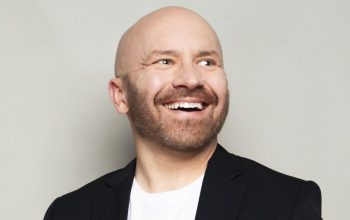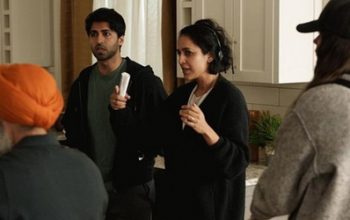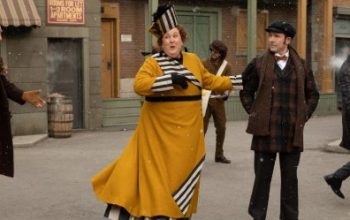The final season of Killjoys kicks off this week, and based on the episodes we’ve seen so far, it’s going to be epic. To celebrate the series, we’re going to be sharing highlights from a Season 5 set visit that we took part in with journalists from across North America.
First up is Killjoys writer Julian Doucet, and producer Beth Iley. They discussed the continuing themes of both found family and biological family, the relationship between Dutch and Aneela, and how the puzzle pieces were put into place leading up to the final season.
From the beginning, the theme of family has always been integral to Killjoys. Does it continue to be the core of this story in Season 5?
Julian: Family is the bedrock of the series. All the different ways it hurts us and heals us. How it shapes us. How is that driving us? When is it our guide? When is it our prisoner? All of our characters have felt lost at times and found their way together. Family is the driving force in [Killjoys], and Season 5 is very much about fighting for that chosen family.
Dutch and Aneela have moved past fighting each other and are facing a much larger threat. Can you share a bit about developing that bond despite their dramatic differences?
Beth: We began to see that in the latter half of Season 4. There’s this really poignant moment where Aneela’s mother asks Dutch who Aneela is to her, and Dutch says, “She’s my family.”
Julian: Dutch has built a family, but suddenly she has [another] family. What that means to her is she finally has a place of belonging. For Aneela, in a weird way, Dutch is her redemption [because] Dutch grounds her, as does her love for Delle Seyah. You will see that rapprochement between Dutch and Aneela … well as best as you can when one of them tried to kill you. It’s very complicated.
Beth: There’s also this family that Dutch didn’t choose, this Hullen heir birthed through Delle Seyah.
Julian: Which is ironic that Delle Seyah started the Vessel Program and then ended up the Vessel.
Beth: There’s a moment in Season 4 as well when Dutch has to come to terms with the way she was raised by Khlyen. D’avin says to her that she was abused, and she is taken aback by that because she never saw it that way.
Julian: That is survival. In that messiness, how do you fight for goodness and that joy?
This show never shied away from tackling real issues that we face in the real world. Did you find a shift in the storytelling at any point given the current political landscape?
Julian: It was always part of the environment I stepped into [in Season 2]. That’s how [Michelle] Lovretta rolls. She doesn’t wait for the dialogue to change. That’s the language she already speaks.
Beth: It’s the job of science fiction to address those conversations more loudly than any other genre can. It was baked in from the get go and has become a part of the fabric [of Killjoys].
Was it a deliberate choice from the beginning to set up a puzzle of missing pieces and memories for the core characters that would need to be recovered? Or was that something that came up as the show evolved?
Julian: Probably a bit of both. The Green was a way to share memories and we wanted to find a way for it to be a biocomputer and store things. What would human data be? Memories. The Hullen wouldn’t have an emotional connection to the data. It built from there. A memory is not just the events, it’s how you felt, what you saw, and what you were living at the time.
Stay tuned for more interviews with the cast and producers of Killjoys, and be sure to watch the Season 5 premiere July 19th on Space and Syfy.



One thought on “Killjoys Producers Discuss the Roles of Family and Memory in Season 5”